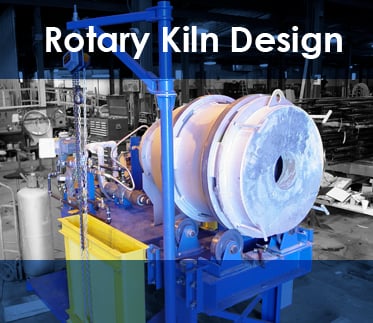Depending on the circumstances, indirect fired rotary kilns can have many advantages over direct fired rotary kilns. One such advantage is when the required thermal processing is best done in an inert atmosphere. As an example, most carbonaceous solids will combust when at elevated temperatures in the presence of free oxygen. High temperature processing of combustible products such as coal, petroleum coke, sludge, and numerous organic solids can be carried out in direct fired rotary kilns, but careful provisions must be made to ensure safety. Fuel rich or near precise stoichiometric flames must be developed to reduce the presence of free oxygen. Such systems are complicated in their control and may involve oxygen detection, explosion relief doors, and automated extinguishing systems. Such extensive provisions involve added costs and careful licensing and insurance detail.
An indirect rotary kiln can have an internal environment relatively free of oxygen through well-designed sealing mechanisms. Such systems can readily process combustible solids at elevated temperatures with a reduced risk of combustion or explosion.
Other applications exist in which oxidation of product does not pose an explosion or combustion risk, but the quality of the product may be deleteriously affected by oxidation. Applications where an undesirable oxide compound forms in the presence of oxygen at high temperatures are often best performed by indirectly heated means. A common example would be a metallic product.
Other isolated cases may exist where a solid may form an undesirable compound with nitrogen at high temperatures. In such a case, it is nearly impossible to eliminate nitrogen composition from processed solids in a direct fired rotary kiln, but relatively easy in an indirect fired rotary kiln.
At Feeco International, we custom design rotary kilns to meet a variety of material problems and applications. For more information on FEECO rotary kilns, contact us today!



